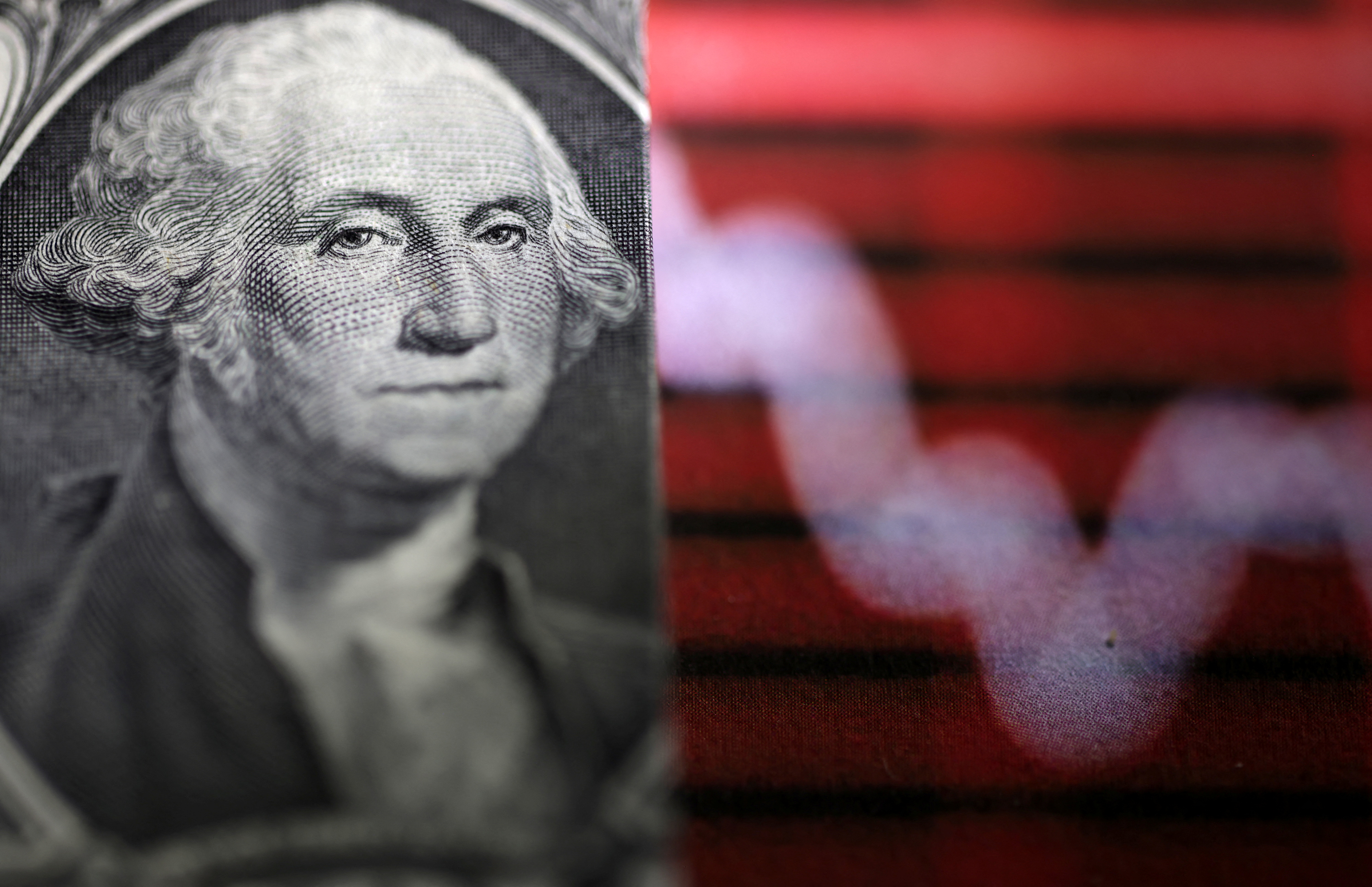/cloudfront-us-east-2.images.arcpublishing.com/reuters/7VBO6LD6ZBMMNPIEWVHSUGOLSE.jpg)

FILE PHOTO: U.S. dollar bills appear in front of a stock chart in this illustration taken on June 12, 2022. REUTERS/Dado Rovik / Illustration / Archive Photo Obtaining licensing rights
NEW YORK (Reuters) – Investors are watching for signs that the conflict in the Middle East may escalate over the weekend, which could exacerbate volatility as investors await the Federal Reserve meeting and important US data next week.
Israeli Prime Minister Benjamin Netanyahu said on Saturday that Israeli forces launched the second phase of the Gaza war while continuing ground operations against Hamas militants.
Investors have grown concerned about the widening scope of the conflict in recent days after the United States sent more military assets to the Middle East while Israel attacked targets in Gaza and Hamas supporters in Lebanon and Syria.
“The situation in Israel… is causing a lot of concern,” said Randy Frederick, managing director of trading and derivatives at Charles Schwab.
On Friday, Brent crude futures settlement rose 2.9% to $90.48 per barrel on concerns that the conflict could disrupt crude supplies. The spot price of gold, a popular safe haven for nervous investors, rose above $2,000 for the first time since mid-May.
In a note on Friday, analysts at Capital Economics said the oil market’s response to the conflict has been “muted” so far.
“However, any sign that other countries in the region are becoming more involved in the conflict would send oil prices sharply higher,” they wrote.
If an escalation in conflict leads the United States to increase war-related spending that increases the deficit, Treasury yields could rise beyond the 16-year highs they have already reached, said Peter Cardillo, chief market economist at Spartan Capital Securities.
Some investors also expect the widening conflict to lead to buying Treasuries as a safe haven. This can mitigate rising yields, which move inversely with prices, which in turn can ease pressure on stocks and other assets.
The S&P 500 has fallen more than 10% since late July, when it reached its highest levels for 2023, although the index has risen more than 7% year to date.
“So far, U.S. government bonds have not performed their usual safe-haven function,” UBS Global Wealth Management said in a note on Friday. “However, an escalation of the conflict will likely shift attention away from monetary policy concerns and boost safe-haven demand for Treasuries.”
Gold and oil could also provide hedges against near-term volatility, they said.
The Cboe Volatility Index (.VIX) has surged in the wake of the conflict and was higher on Friday, approaching a seven-month high.
The Federal Reserve is set to deliver its latest monetary policy statement on Wednesday, while Apple’s quarterly results highlight another busy week of corporate reports.
Louis Krauskopf reports. Additional reporting by David Randall. Editing by Ira Iosibashvili, David Gregorio, and Diane Kraft
Our standards: Thomson Reuters Trust Principles.

“Web maven. Infuriatingly humble beer geek. Bacon fanatic. Typical creator. Music expert.”





More Stories
Dow Jones Futures: Microsoft, MetaEngs Outperform; Robinhood Dives, Cryptocurrency Plays Slip
Strategist explains why investors should buy Mag 7 ‘now’
Everyone gave Reddit an upvote